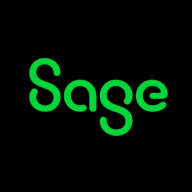

Salesforce Essentials and Sage CRM compete in the CRM space, each offering unique strengths. Salesforce Essentials holds an upper hand with its robust AI capabilities, while Sage CRM stands out in finance integration and reporting tools.
Features: Salesforce Essentials features strong AI capabilities, Sales Cloud for managing the sales process, and Service Cloud for customer support activities. Sage CRM offers comprehensive finance features, integration with Microsoft Office 365, and extensive reporting tools.
Room for Improvement: Sage CRM could improve email and social media integrations, modernize its interface, and enhance dynamic reporting dashboards. Salesforce Essentials encounters challenges with SAP integration, analytics, and requires a more intuitive interface to streamline product configurations.
Ease of Deployment and Customer Service: Salesforce Essentials offers deployment across public and private clouds with rapid technical support, though some users find it complex. Sage CRM provides flexible deployment in various environments with satisfactory customer support but requires faster response times.
Pricing and ROI: Sage CRM has moderately priced options with a yearly license, providing good ROI for enterprises. Salesforce Essentials, seen as expensive for small budgets, justifies its cost with significant ROI and operational benefits.
Salesforce Essentials has excellent customer service.
Salesforce Essentials has proven stable, with no downtime that affects my work.
There are other competitors, like Zoho CRM, that offer similar features at a lower cost.
The costs associated with Salesforce Essentials are substantial, which is a drawback compared to competitors who offer similar services for less.
Salesforce Essentials is excellent because it is one of the most flexible CRMs available.


Salesforce Essentials is a cloud-based CRM tool for businesses seeking flexible, scalable, and customizable solutions to enhance sales and customer support processes.
Designed for seamless integration across multiple channels, Salesforce Essentials includes Sales and Service Cloud to simplify sales tasks and customer management. It enhances finance, credit, and quality processes with user-friendly AI capabilities and predictive analytics. Despite its strengths, there is room for improvement in SAP integration, interface simplicity, and report generation. Cost-effectiveness and support for diverse languages are also potential upgrade areas. Businesses use this CRM solution for lead management, opportunity tracking, and automating sales workflows, transitioning from paper-based methods to digital efficiency.
What are the essential features of Salesforce Essentials?In the retail industry, businesses employ Salesforce Essentials for customer data management and transparency in order processing. Healthcare providers use it for patient engagement and streamlined communication. Financial services utilize it for billing management and compliance, harnessing automation tools for efficient data handling.
We monitor all CRM reviews to prevent fraudulent reviews and keep review quality high. We do not post reviews by company employees or direct competitors. We validate each review for authenticity via cross-reference with LinkedIn, and personal follow-up with the reviewer when necessary.